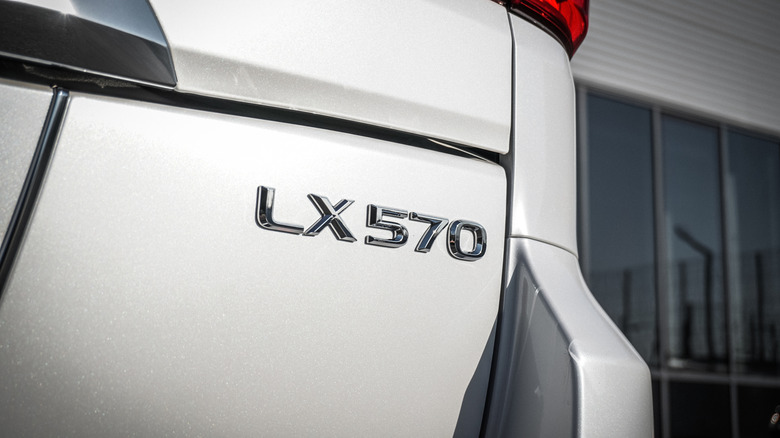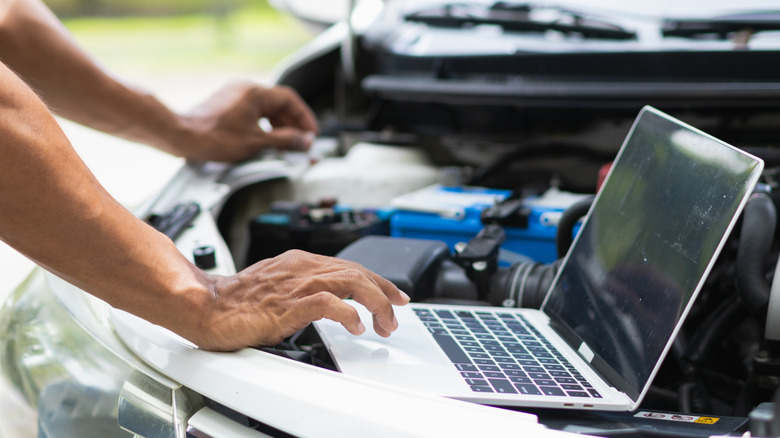Why Karen Read's SUV Computer Chip Should Terrify Privacy Advocates
The trial of Karen Read, a Massachusetts woman accused of hitting her police officer boyfriend with her Lexus LX570, is all over the headlines as of late. Beyond all the legal drama, there's been one major revelation from this case that very few seem to be acknowledging — your car is watching you. More specifically, it's tracking your every move, storing the data, and could easily be handed over to law enforcement or outright stolen by someone who knows how to access it.
It's all thanks to the digital information extracted from Read's Lexus SUV. Prosecutors used it to reconstruct her actions down to the second. Regardless of Read's guilt or innocence, one thing is impossible to ignore — integrating smart tech has allowed modern vehicles to essentially become surveillance devices on wheels.
Today's vehicles are equipped with complex networks of sensors, GPS systems, infotainment units, and engine control modules – all of which can store behavioral information for days, weeks, or even months. The case sets a precedent for the unsettling reality that most vehicle owners are completely unaware that their cars are quietly collecting this kind of precise data off them. This data isn't just diagnostic, either. It includes driving speed, throttle application, seatbelt usage, door openings, and location history. Privacy advocates should be outraged, to say the least.
What kind of car data has been used in the case?
In the case, this data has been vital to the prosecution. Expert testimony confirmed that Karen Read's vehicle's internal systems captured and stored tons of granular details about her driving behavior. This included the exact time the car was turned on, the force applied to the gas pedal, the speed of acceleration, and the precise path it traveled. According to reporting on the trial provided by USA Today, a 10-second "trigger event," recorded the SUV moving forward 34 feet, then reversing 53 feet. At one point, the SUV accelerated with the throttle at 74%.
This data was then synchronized with the alleged victim's phone records to pinpoint the moment of his final interaction. Investigators even compensated for discrepancy between the vehicle's infotainment system and the clock on the victim's phone, creating a synchronized digital timeline of the night in question.
Regardless of how important this data has been to the case, it's not hard to imagine how much worse this would look in different contexts. Potential misuse of this data could include spying on political rivals, abusive partners stalking their victims, or selling behavioral profiles to advertisers. Unlike phones, TVs, or other smart home devices that at least known for their data collection capabilities, most drivers don't realize that their vehicles are gathering all this information. Even fewer realize that this information can be retrieved and interpreted later – sometimes without a warrant, depending on jurisdiction.
Why it matters for privacy's sake
The Karen Read trial revealed that her Lexus SUV's system had been integrated with a diagnostic tool called Techstream, which is a proprietary platform used by mechanics and investigators to extract vehicle data. Not only did this provide detailed movement records, but it also allowed the data to be matched with third-party sources like cell phone activity and surveillance footage. These layers of triangulation mean that cars are no longer just modes of transport — they are now comprehensive tracking systems capable of building digital dossiers of their drivers.
Read's defense has already raised concerns about the integrity of the investigative process, pointing to things like inconsistencies in expert witness backgrounds as well as the methods used to synchronize clocks between the SUV and the victim's phone. While the legal implications of these discrepancies remain to be seen, the broader takeaway is that when enormous amounts of personal data are being captured without your knowledge or consent, the stakes for misinterpretation are dangerously high.
This is especially true in legal cases, where digital evidence can appear scientific and therefore infallible, when in reality it often involves layers of subjective analysis and assumption. Privacy advocates have long warned about the creeping erosion of personal liberties in the digital age. What the Karen Read case demonstrates is that this erosion isn't confined to phones or online behavior – your car is tracking you onto the roads, as well.


